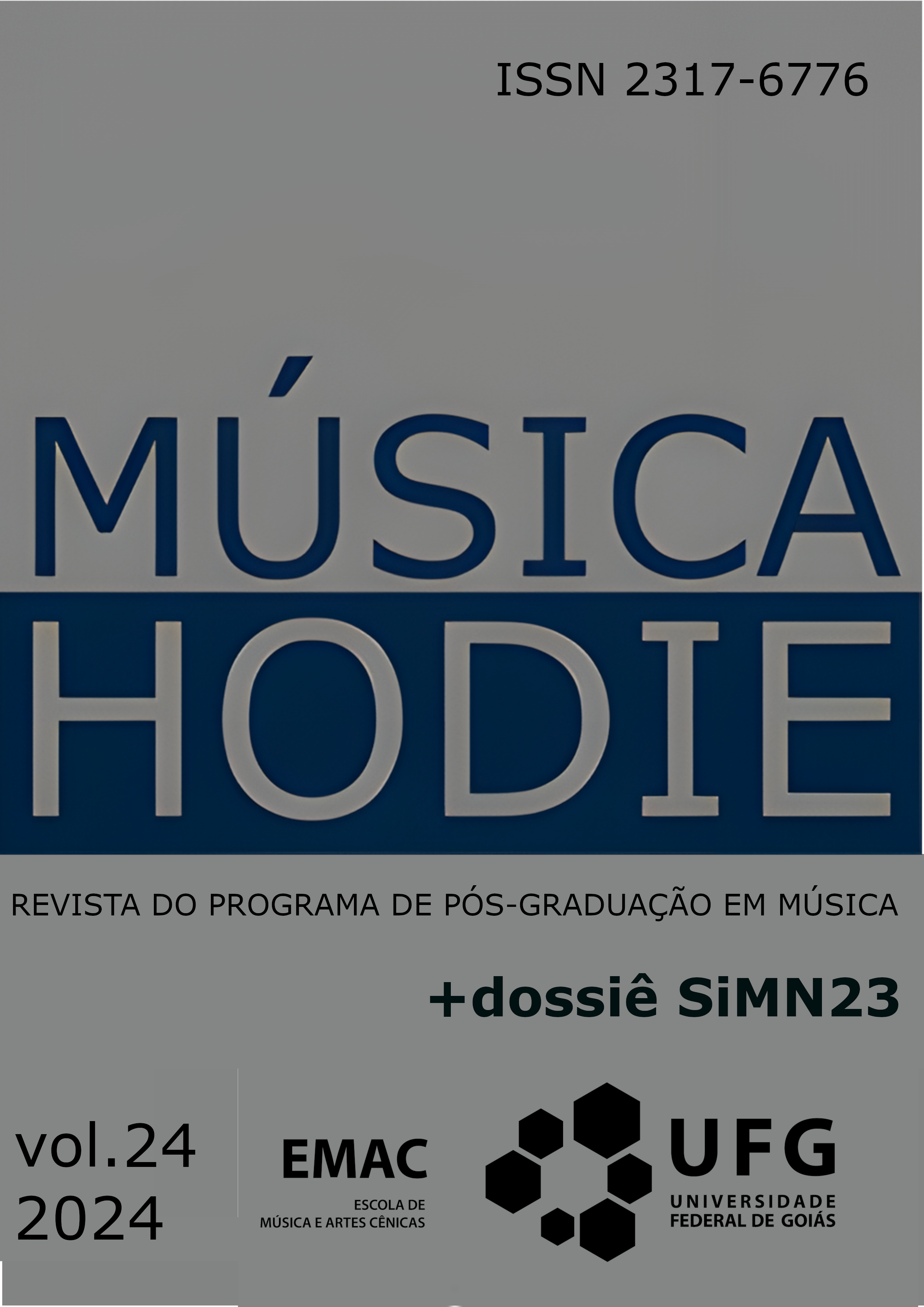Instrumentos de Sopro na Reabilitação da Doença Pulmonar Obstrutiva Crônica: Uma Revisão de Escopo
DOI:
https://doi.org/10.5216/mh.v24.79049Keywords:
Chronic Obstructive Pulmonary Disease, wind instruments, music therapy, music-based interventions, respiratory rehabilitationAbstract
Abstract: Chronic Obstructive Pulmonary Disease is a health condition that can develop into a disability, as respiratory symptoms impact functionality, psychosocial aspects, and quality of life. Recommended treatment includes attention to pulmonary rehabilitation programs, with musical interventions being used complementarily. Modalities involving singing and music listening have already been compiled in previous reviews, but there is a gap in the review of studies regarding the use of wind instruments with this group. This scoping review aims to explore the use of wind instruments in COPD. A systematic search with related terms was conducted in 12 databases and the grey literature. Following independent screening, 12 records were included: 08 completed studies and 04 research protocols. Data obtained were organized for presentation in a narrative synthesis, following the acronym PICOT (population, intervention, comparator, outcomes, and study type). We identified that all wind instruments used in the studies were acoustic, with musical interventions included predominantly involving the harmonica and/or the melodica, facilitated by music teachers, music therapists, and other healthcare professionals. Some studies evidenced statistically significant benefits from the use of these wind instruments, including improvement in pulmonary function, respiratory capacity, functional capacity, dyspnea, activities of daily living, and symptoms of depression. We highlighted the need for investigations regarding adherence to this intervention, as well as conducting studies with more detailed protocols, with larger samples, and in different geographical regions of Latin America, Oceania, and Africa.















